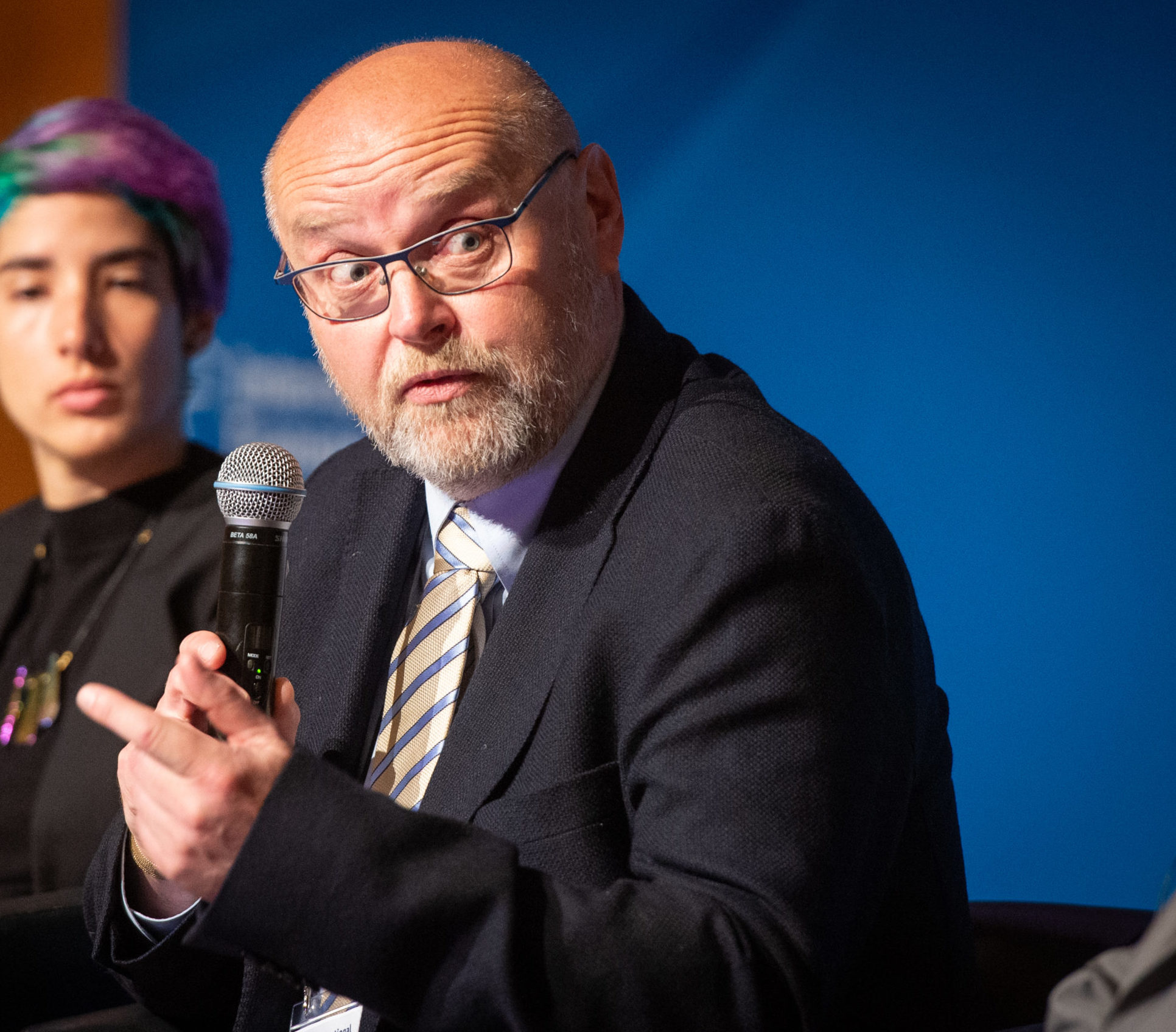
This year, the Annual Summit of the International Transport Forum took place in Leipzig, Germany between May 18-20. AE´s President Harald Neerland participated as speaker. This summit is the world’s largest gathering of transport ministers and Harald Neerland took part in the panel “Everyone included: tackling the digital gap”. During this session, panelists reflected on questions such as “Can digitalisation in transport lead to exclusion?” “What solutions and possible policies are there to bridge an increasing “digital divide” in the transport world?” and AE brought the perspective of the autistic community to the discussion.
The session “Everyone included: tackling the digital gap” focused on the digital gap, defined as the gap between those who have access to digital technology and those who do not.
The discussion followed three main axes: The cost of services, the accessibility to services and the ability to use services. As a starting point it was noted that while digital technology may be helpful in making society more accessible, the design of this technology does not consider the diversity in society, and in particularly people with cognitive disabilities.
With respect to the ability to use services, the discussion naturally went to education and the need for an individual approach to learning. The topic of disabilities and diversity must be mainstreamed across all professional curricula, not only in the education of teachers.
The phrase “Interface vs. in-your-face” was used to kick off the discussion on whether or not we can solve all services digitally. The discussion highlighted that the need for “meeting” a physical person will never be replaced by a chat box. However, human services and digital services are not mutually exclusive.
Above all, people must be put first in digital service design processes. Time and time again, experience and evidence show that designing digital and other systems for those with the greatest needs helps not just them, but all. Often the right technological solutions already exist and are ready to be rolled out more globally. However, sometimes the best solution may just be to enable human interaction again, to regenerate confidence in services and ensure their use.
About the International Transport Forum:
The International Transport Forum is an intergovernmental organisation with 63 member countries. It acts as a think tank for transport policy and organises the Annual Summit of transport ministers. ITF is the only global body that covers all transport modes. The ITF is administratively integrated with the OECD yet politically autonomous. ITF works for transport policies that improve peoples’ lives. Our mission is to foster a deeper understanding of the role of transport in economic growth, environmental sustainability, and social inclusion and to raise the public profile of transport policy.